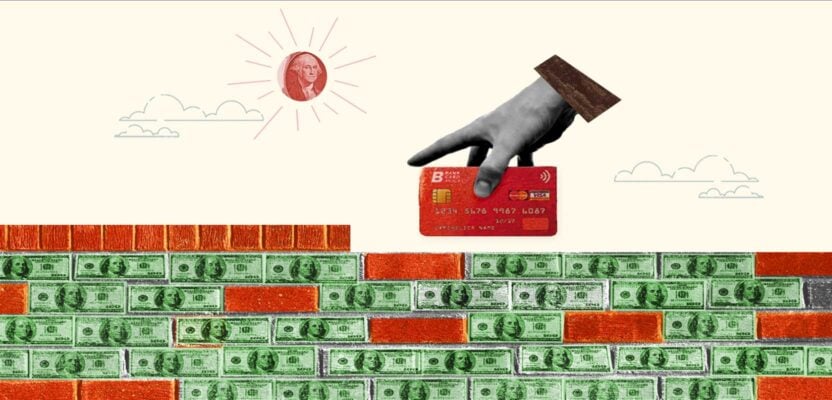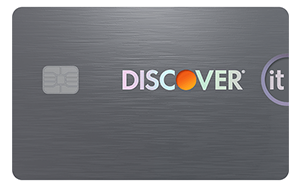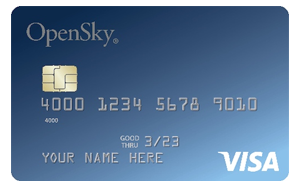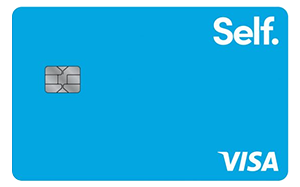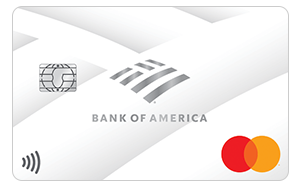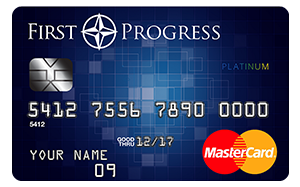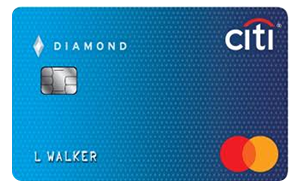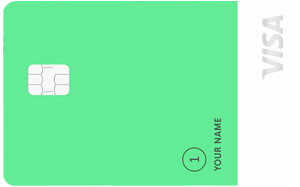If you’re new to the world of credit, then credit building can be daunting—especially since you usually need to have a credit account already. You may be feeling stuck if lenders are turning you away due to an insufficient credit history or poor credit.
Whether you’re starting from scratch and trying to build credit at 18 or you’re preparing for a major financial move like taking out a mortgage or auto loan and want to qualify for the best interest rates, there are simple ways you can build credit fast.
Table of Contents
Here are the four best ways to build credit:

1. Build credit with a credit card
Credit cards are a common entry route to credit because they’re easy to use and don’t require a huge financial commitment. However, the benefits you’ll get depend on how you use your credit card to build credit. Since your activity will be added to your credit report, responsible spending can help you build credit, whereas maxing out your cards or making late payments can do a lot of damage.
How to get a credit card if you have poor (or no) credit
There are several great first credit cards that you can choose from if you’ve never had a credit card before and you’re building credit for the first time. Before applying for one, check that the card issuer reports to all three credit reporting agencies and compare interest rates to make sure you’re getting a card with a good annual percentage rate (APR).
You have four main options for building credit with a credit card if you’re completely new to credit or your credit has been damaged.
Get a secured credit card
Unlike a traditional credit card, there’s a special type of credit card called a secured credit card (or credit-builder card) that you can get with no credit history because there’s essentially no risk for your lender.
When you get a secured credit card, you’ll have to put down a refundable security deposit, which will become your credit limit. Your lender will keep this security deposit if you fail to repay your debts. Your credit will improve as your creditor reports your credit card payments to the credit bureaus and they contribute to your payment history. 1
| Credit Card | Best For | Credit Score | Annual Fee | Welcome Bonus | |
|---|---|---|---|---|---|
| Secured Overall | 300–669 | $0 | Cashback Match | ||
| No Credit Check | 300–669 | $35 | |||
| Beginners | 300–669 | $25 | |||
| No Annual Fee | 300–669 | $0 | |||
| Bad Credit | 300–669 | $49 | |||
| Rebuilding Credit | 300–669 | $0 | |||
| Credit Card | Best For | Credit Score | Annual Fee | Welcome Bonus | |
|---|---|---|---|---|---|
| Secured | 300–669 | $0 | Cashback Match | ||
| Unsecured (No Deposit) | 300–669 | $39 ($0 for the first year if you set up autopay) | |||
| Beginners | 300–669 | $49 | |||
| Students | 580–739 | $0 | Cashback match | ||
| No Annual Fee | 300–669 | $0 | |||
| High Approval Odds | 300–669 | $35 | |||
| Building Credit | 300–669 | $0 | |||
| Credit Card | Best For | Credit Score | Annual Fee | Welcome Bonus | |
|---|---|---|---|---|---|
| No Credit Overall | 300–669 | $0 | Cashback Match | ||
| Starters | 300–669 | $49 | |||
| Students | 580–739 | $0 | Cashback match | ||
| No Credit Check | 300–669 | $35 | |||
| No Annual Fee | 300–669 | $0 | |||
| Unsecured (No Deposit) | 300–669 | $75 for the first year ($48 after) | |||
| High Credit Limit | 300–669 | $39 ($0 for the first year if you set up autopay) | |||
| Instant Approval | 300–669 | $75–$99 the first year, then $99 annually | |||
| Beginners | 300–669 | $0 | |||
| Credit Card | Best For | Credit Score | Annual Fee | Welcome Bonus | |
|---|---|---|---|---|---|
| Bad Credit Overall | 300–669 | $0 | Cashback Match | ||
| Secured | 300–669 | $0 | |||
| Unsecured (No Deposit) | 300–669 | $0 | |||
| No Interest | 300–669 | $0 | |||
| No Credit Check | 300–669 | $35 | |||
| No Fees | 300–669 | $0 | |||
| High Credit Limit | 300–669 | $39 ($0 for the first year if you set up autopay) | |||
| Rewards | 300–669 | $0 | |||
| Building Credit | 580–739 | $0 | |||
Become an authorized user
One of the fastest ways to build credit is to become an authorized user on a family member’s or friend’s credit card account. Since you’re not applying for your own credit card, you don’t necessarily need to be a legal adult to become an authorized user. This makes it the best approach for building credit as a teenager.
Building Credit as a Teenage Authorized User
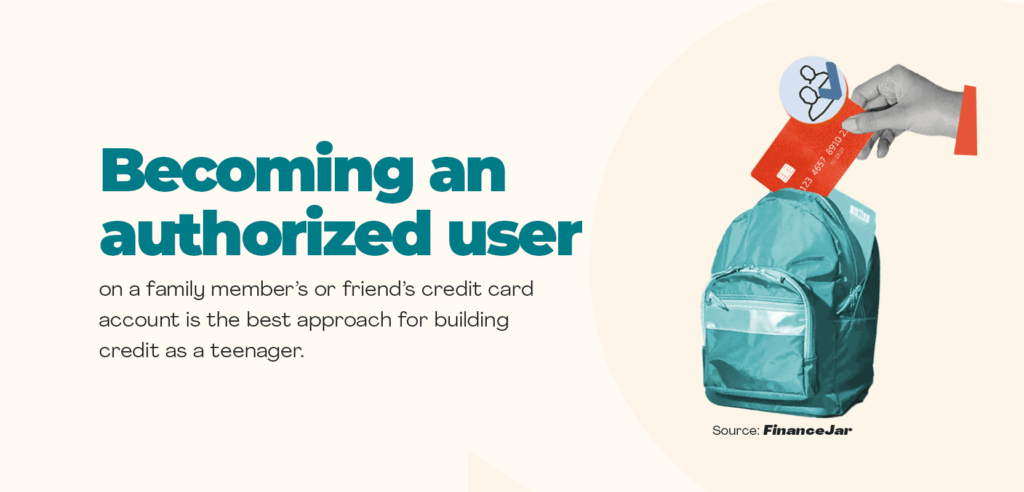
The process usually involves the card issuer adding the primary cardholder’s payment history to your credit report, which will lengthen your credit history and boost your credit score if they’re a responsible borrower.
However, it’s worth noting that being an authorized user affects your credit score in the reverse as well—it will fall if the primary card user doesn’t make on-time payments or uses too much of their credit limit. You should also make sure that the credit card company reports authorized users to the credit bureaus—your credit will only benefit if they do.
Get a cosigner
If you’re starting to establish credit from scratch or you have a bad credit score, then qualifying for an unsecured credit card can be difficult since many companies impose a minimum credit score requirement for these credit cards. You’ll have a lot more options if you ask a family member or close friend to be a cosigner on your credit card application.
Bear in mind that your cosigner will be accepting responsibility for repaying your debts if you stop making payments. For this reason, you should both weigh the pros and cons and not make the decision lightly.
Get a credit card with no credit score requirement
More and more companies are responding to the demand for credit cards among people with no credit score or poor credit by using criteria other than your credit score to assess your creditworthiness.
If you want an unsecured card but don’t want to get someone else involved by becoming an authorized user or getting a cosigner, then you may be able to qualify for one of these alternative cards with no minimum credit score requirement:
Note that some unsecured credit cards for people with no credit require a fee, and you may only be offered relatively low credit limits. However, these cards have the advantage of allowing you access to an unsecured credit line without help from someone else.
You don't need to carry a credit card balance to build credit
It's a common misconception that you should keep a small balance on your credit cards to build credit. This will only cost you more in interest. As long as you use your card occasionally to keep it active, having a zero balance will actually help (rather than hurt) your credit since the major credit scoring models reward consumers who have fewer accounts with a balance. 2 3
2. Use credit-building tools
It’s difficult to build credit if you have no credit history (or a short credit history) because you won’t qualify for most loans and credit cards. Fortunately, there are credit-building tools out there that you’ll be able to access even with no credit history.
Credit-builder loans
Unlike traditional installment loans, credit-builder loans don’t immediately give you access to money you’ve borrowed, and they don’t require a good credit score. Instead, your lender will deposit your credit-builder loan into a savings account, which you won’t be able to access until you’ve repaid the full amount.
Typical loan amounts range from $300 to $1,000, and you pay the loan off in installments over 6 to 24 months. 4 You can get these loans from banks or credit unions. As you repay the debt, your lender will report your loan payments to the credit bureaus, which will boost your credit score.
Rent and bill reporting services
Opening a new credit line isn’t the only way to establish credit. What many people don’t know is that you can also get credit for paying your regular monthly bills and rent. Either sign up for a paid reporting service (such as Rental Kharma, LevelCredit, or PayYourRent) or a free bill-reporting service like Experian Boost.
Experian Boost will give you credit for your payments toward phone bills, utilities, and streaming services like Netflix. However, this will only increase your Experian credit score—your TransUnion and Equifax scores won’t change.
Boost your credit for FREE with the bills you're already paying

Boost your credit for FREE with the bills you're already paying
- Experian Credit Report and FICO® Score updated every 30 days on sign in
- Instantly increase your credit scores for FREE with Experian Boost™
- Daily Experian credit monitoring and alerts
Unfortunately, although older FICO scoring models incorporate bill payments into the calculation of your credit scores, FICO 8 and earlier models don’t factor in rental payments. 5 However, FICO 9 and all the VantageScore models factor both rent and bill payments. 6 7
3. Practice good credit habits
While having open tradelines and active accounts on your credit report is a necessary first step to building credit, you’ll also need to practice the following good credit habits to get and maintain a good credit score:
- Pay your bills on time: Arguably the best thing you can do to build credit is to make consistent on-time payments toward your credit accounts. Creditors usually report payments as late if they’re more than 30 days overdue, and this can significantly damage your credit score.8
- Don’t overspend on credit accounts: One of the fastest ways to improve your credit score is to reduce your credit card balances. This is because your debt-to-credit ratio (or credit utilization ratio) is a major component of your credit score. VantageScore recommends using below 10% of your credit limit. 9
- Keep your credit card accounts open: You might be tempted to close any credit accounts you’re not using once you’ve built up some credit, but closing credit cards will actually hurt your score. It’s generally better to keep your cards open so that you keep your credit limits high (and credit utilization low) and the accounts continue to positively contribute to your payment history.
Set up automatic payments to your lender
If you struggle to keep track of your bills, you can set up autopay to make sure you never forget to pay them on time. Alternatively, you can log into your bank account and schedule a recurring payment to your lender.
4. Monitor your credit reports and scores
Actually checking your credit reports and credit scores is one of the most important steps in credit building. Credit monitoring allows you to see the consequences of different credit actions, spot problems or errors early on, and stay motivated.
You can request free copies of your credit reports from all three major credit bureaus at AnnualCreditReport.com. Your creditors may provide you with your credit scores for free, but if not, you can also sign up for a paid credit-monitoring service. Don’t worry: checking your credit score won’t lower it.
How credit-building affects your credit score
When you start taking steps to build credit, it’s important that you understand how credit works and how different credit actions impact your credit score.
These are the main factors that contribute to your credit score:
- Payment history: The timeliness of your payments on all your credit accounts.
- Credit utilization rate: Your debt-to-credit ratio, or the amount of credit you’re using compared to your total credit limit.
- Length of credit history: How long you’ve been using credit and how long you’ve kept your accounts open.
- Credit mix: The diversity in the types of credit accounts you have (e.g., revolving credit and installment loans).
- New credit: The number of hard inquiries you have from recent credit applications.
Here’s a look at how these factors break down in the major credit scoring models used by lenders:
Main Credit-Building Factors for Improving Your FICO Score

Main Credit-Building Factors for Improving Your VantageScore

Note that, although there are differences between FICO and VantageScore, they take basically the same factors into account when calculating your credit score, even if they weight these factors slightly differently and refer to them by different names.
How long does it take to build credit from scratch?
It can take a long time to build credit from scratch. There’s no minimum age for building credit, but you won’t receive your first FICO score until you’ve had a line of credit for at least 6 months. 10 You’ll receive your first VantageScore as soon as any activity is added to your credit report (typically 1 month after you open your first credit account). 11
You might expect your first credit score to start at 300 (the lowest possible credit score in the standard VantageScore and FICO models), but it usually won’t be that low. If you follow the tips above, you can begin taking advantage of the benefits of good credit early on, although your score will usually improve as the length of your credit history increases and you demonstrate your creditworthiness.
Takeaway: You can build your credit by using low-risk credit accounts to establish a good payment history
- Building your credit isn’t a fast process. You won’t have a credit score until you have a credit account that’s at least six months old (FICO) or one month old (VantageScore).
- The best ways to build credit include paying your bills on time and maintaining low balances on your credit accounts.
- You can also build your credit by becoming an authorized user on someone else’s credit card or taking out a credit-builder loan or secured credit card.
- If you want to build your credit without getting a new credit card or loan, you can use rent and utility reporting services to add your rent and bill payments to your credit report.
